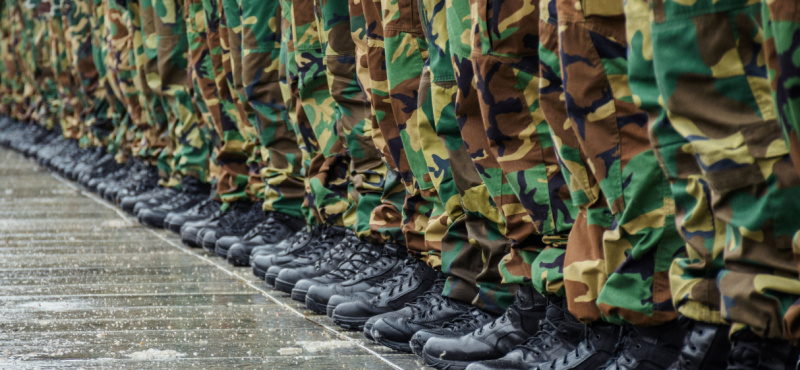Bancroft Global Development has “agreed to a framework to discuss possible future activities with the government of the Central African Republic” as Wagner Group Russian mercenaries depart.
Presidential spokesperson Albert Yaloké Mokpème explained that the Central African Republic wanted “to diversify its relations” in terms of security.
“As part of the reconstruction of the national army, we called on partners, including the Russian Federation, Angola, Morocco, and Guinea, who are helping us to train our soldiers,” he added. “The United States is also offering to the Central African Republic to train its soldiers, both on Central African soil and on American soil. ”
Regarding the already effective presence of Bancroft, Mr. Mokpème did not confirm it. “The training of our army remains our priority,” he said. But “the substance of the matter, I am not in a position to talk about it.”
According to the French daily Le Monde, Washington offered the CAR a security agreement at the end of 2022 for President Touadéra in exchange for distancing itself from Wagner. Neither Washington nor Bangui have confirmed.
The Situation in the Central African Republic
The Central African Republic is very diverse in many ways. It straddles the line between the mostly Christian southern half of the continent and the mostly Muslim northern half. Most of the Central African Republic consists of Sudano-Guinean savannas, but the country also includes a Sahelo-Sudanian zone in the north and an equatorial forest zone in the south.
Furthermore, despite significant mineral deposits and other resources, such as uranium reserves, crude oil, gold, diamonds, cobalt, lumber, and hydropower, as well as significant quantities of arable land, the Central African Republic is among the ten poorest countries in the world. It has the lowest GDP per capita at purchasing power parity in the world.
Diversity is a good thing. Too much diversity is a bad thing. Because of all these contrasts, it’s little wonder that the CAR is one of the most unstable countries in Africa.
In 2004, the Central African Republic Bush War began, as forces opposed to “President” François Bozizé took up arms against his government. Bozizé seized power in a military coup with the support of foreign forces, mostly Marxists from Angola. France, the former colonial ruler of the CAR, reluctantly stepped in, mostly to stop the bloodshed. A series of airstrikes forced the rebels to the table. Despite the uneasy truce, fighting continued, mostly between Christian and Muslim paramilitary groups.
Finally, a 2014 ceasefire negotiated in neighboring Congol basically partitioned the country. Yet instability continued. For example, the nation’s Constitutional Court barred former president François Bozizé from the 2020 presidential ballot. The court ruled he did not satisfy the “good morality” requirement for candidates because of an international warrant and United Nations sanctions against him for alleged assassinations, torture, and other crimes
With isolation increasing, the Central African Republic turned to the Wagner Group for assistance with an ongoing insurgency. With the Wagner Group gone, someone needs to fill in the gap.
What Contractors Do
Wagner Group mercenaries were mostly fighters. BGD and other contractors do their share of fighting. But they also serve in other important areas.
Contractors train government security forces. The lessons do not come from a textbook. Instead, contractors pass on what they know about fighting insurgents. This process includes gathering intelligence without bullying people, being prepared without being paranoid, and using proven techniques in the field.
Additionally, contractors deter enemy activity. Under U.S. law, private military contractors can defend themselves, but they cannot start fights. Insurgents usually do not know that. They see armed contractors in an open market and they usually fade into the shadows rather than proceeding with a planned attack.
Holding down the fort is another element of deterrence. When they verify IDs at checkpoints and operate security gates, contractors know when to use a friendly traffic cop face and when to be more intimidating.
Finally, one the shooting stars, contractors are vital to rebuilding efforts. Unless these efforts succeed, all the sacrifices made during combat operations are for nothing. Usually, winning the peace is more important than winning the war.
Injury Compensation Available
When contractors get hurt in any capacity, the Defense Base Act replaces their lost wages and pays their reasonably necessary medical bills. But DBA insurance companies do not hand out these benefits like candy on Halloween.
In fact, they often deny benefits before they examine the application. Strict time and reporting deadlines apply in these cases. A missed deadline or an improperly filed form makes it easy for insurance company lawyers to deny claims without addressing their merits.
Claims that survive the first-look stage usually do not fare much better at a mediation settlement conference. A mediator reviews the paperwork, usually the medical bills, and meets with both sides. However, these negotiations are not court-supervised, which means there’s no duty to negotiate in good faith. Therefore, instead of negotiating and compromising, insurance companies usually make take-it-or-leave-it offers that are not anywhere close to fair.
At this point, a Defense Base Act lawyer gets involved and prepares for an appeal hearing before an ALJ. For all intents and purposes, an ALJ hearing is like a trial. Attorneys can introduce evidence, challenge evidence, and make legal arguments. Furthermore, although they may not be completely independent, ALJs definitely are not one-sided.
So, the insurance company knows it’s in for a fair fight. As a result, many claims settle before the hearing. These settlements usually include money for economic losses, such as lost wages and medical bills.
For more information about DBA benefits, contact Barnett, Lerner, Karsen, Frankel & Castro, P.A.

